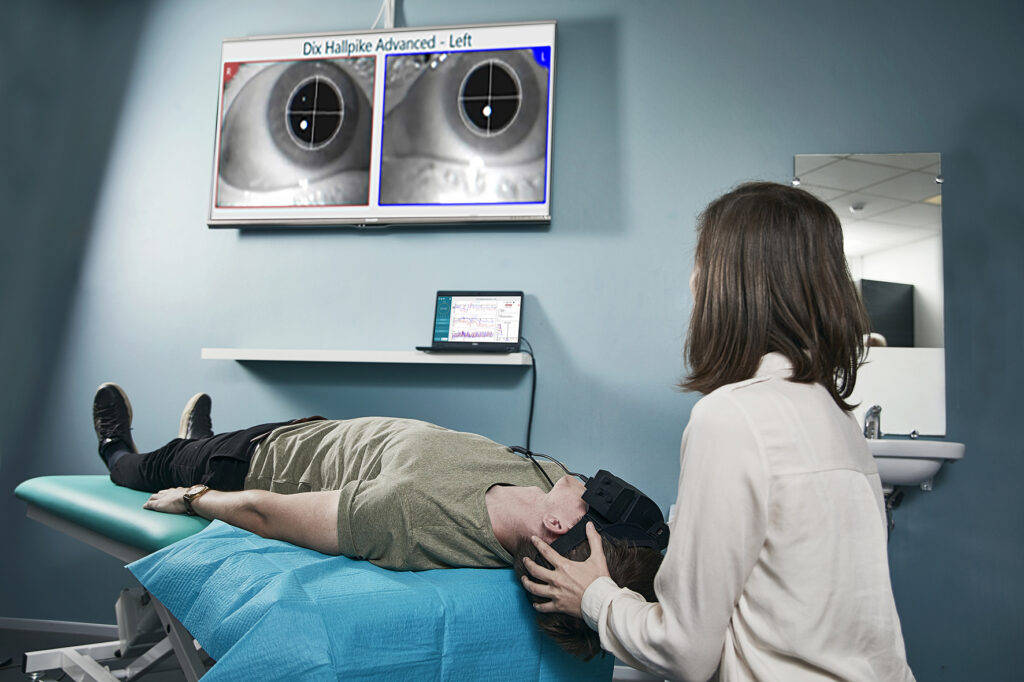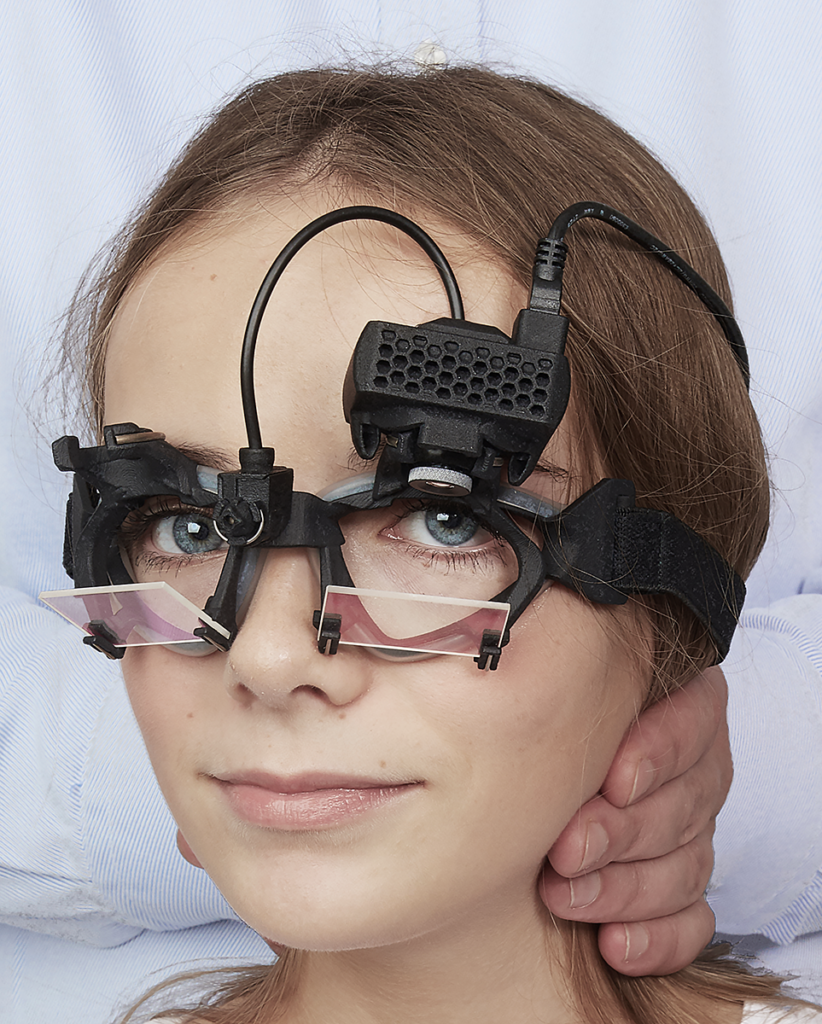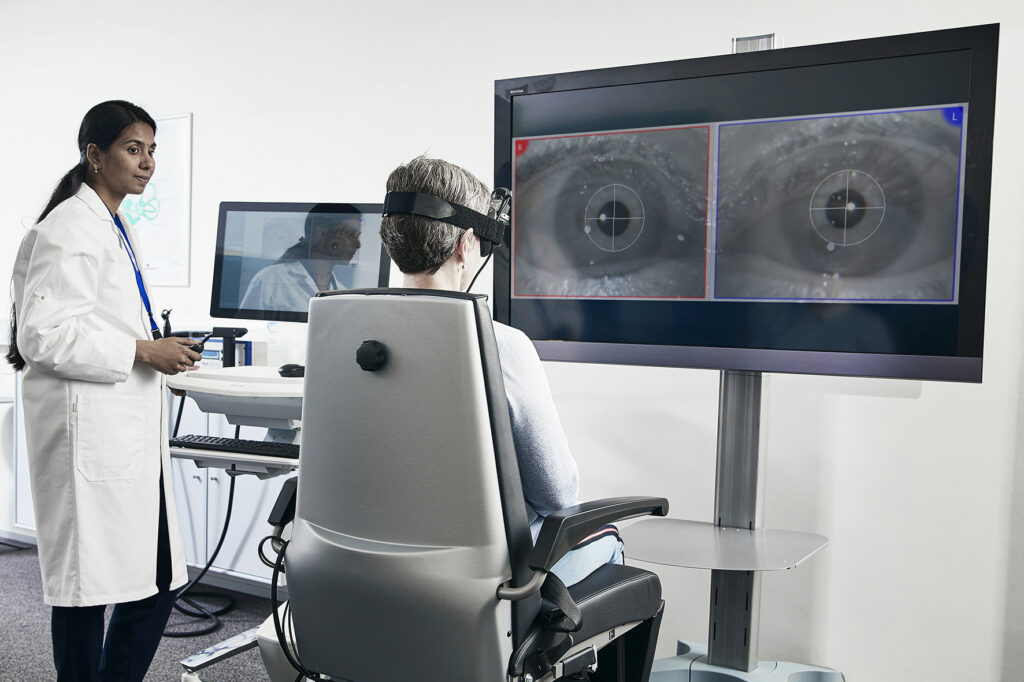What Is Dizziness?
Do you feel your head spin when lying down or when you get up too quickly? There are many words used to describe the many sensations we feel when we experience balance issues. It may simply be an unsteadiness or can be as serious as a fall.
Dizziness is a term often used to describe a range of abnormal sensations, such as feeling faint, unsteady, weak, or woozy. Vertigo is a form of dizziness that makes you feel like the room is spinning around you.
A functioning balance system involves a complex co-ordination of our brain, inner ear, eyes, and muscle receptors. Balance or Vestibular Testing is an important part of diagnosing balance issues.

A functioning Balance System involves the careful co-ordination of a number of our sensory systems including our vision, our vestibular system (inner ear), and the sensing receptors in our feet and postural muscles. Sensory information is then sent to our brains to maintain our balance.
A dysfunction in any of these systems can create a balance disorder. If you are suffering from dizzy spells, your doctor will request vestibular testing with an Audiologist as a first step in assessing balance issues.
- Light-headedness
- Feeling faint
- Nausea or feeling woozy
- Room Spinning (Vertigo)
- Losing your balance and feeling unsteady
- Feeling like you are going to fall over
- Rearing out to one side when you are walking
- Vision changes, such as blurriness
- Confusion and disorientation
These symptoms may also indicate more serious health conditions. Please seek medical advice.

Dizziness and Vertigo are words that we sometimes use interchangeably. But, they actually mean different things medically. Dizziness is used to describe any disorientation of your body, unsteadiness, loss of balance, lightheadedness, etc. Vertigo typically describes a spinning sensation, such as the room spinning, and can be extremely debilitating. The most common cause of vertigo is Benign Paroxysmal Positional Vertigo (BPPV). BPPV which can be comprehensively assessed by our Audiologist during your balance testing in Hobart.

Dizziness has many causes, including inner ear problems, motion sickness and side effects from some medications. It can also be caused by more serious underlying health conditions like low or high blood pressure, cardiovascular disease, infections, or injuries. Your doctor may request a vestibular assessment with our audiologist if inner ear dysfunction is suspected. Schedule your professional balance testing in Hobart with Ability Hearing Dizziness Clinic.
About 20% of people over the age of 70 commonly experience imbalance or unsteadiness. The causes of dizziness can be many, but 50% of balance issues in older adults are caused by a condition called Benign Paroxysmal Positional Vertigo (BPPV). The condition is easily treated in most cases.


Benign Paroxysmal Positional Vertigo (BPPV)
BPPV is the most common cause of balance disorder. BPPV is triggered by certain head movements such as rolling over in bed or tipping your head back. BPPV is caused by a loosening of tiny crystals in your inner ear. BPPV is easily treatable.

Vestibular Testing Equipment Hobart
Our Audiologists at Ability Hearing Dizziness Clinic evaluate your balance system by measuring your eye movements during movement. By doing this, we can evaluate how well your inner ear is responding and where the problem may be. At Ability Hearing, we provide vestibular or balance testing that includes Head Impulse (vHIT), Eye Movement Assessments, and Tests of the Utricle (oVEMP) and Saccule (cVEMP).

Can Balance Disorders be Cured?
Dizziness treatment depends on the cause of the balance problem. BPPV can be easily treated with the Epley Manoeuvres Treatment for other disorders may require a multidisciplinary approach involving your doctor, physiotherapist, as well as our Hobart audiologist. Contact our clinic for dizziness treatment in Hobart.
✔️ Comprehensive Assessment
Ability Hearing & Balance can diagnose the causes of your dizziness using comprehensive vestibular assessments—including BPPV and more complex inner ear issues. Book a dizziness assessment at an Ability Hearing Dizziness Clinic across Tasmania.
✔️ Coordinating Your Care
We will coordinate with your GP, physio, or ENT if treatment is needed following your assessment.
✔️ Your Questions, Answered
Our specialists at Ability Hearing Dizziness Clinic take the time to listen to you and understand your dizziness and balance disorder symptoms to help you seek clarity. We understand you want answers—that’s why we explain the results of your assessment in a clear, straightforward way.

Seek immediate medical attention if you are dizzy, and experiencing any of the following symptoms: Chest Pain; Severe Headache; High Fever; Head Injury; Shortness of Breath; Irregular Heartbeat; Seizures; Stiff Neck; Sudden changes in Speech, Vision or Hearing; Vomiting; Weakness or Numbness in your Face; Weakness in your arm or leg.



